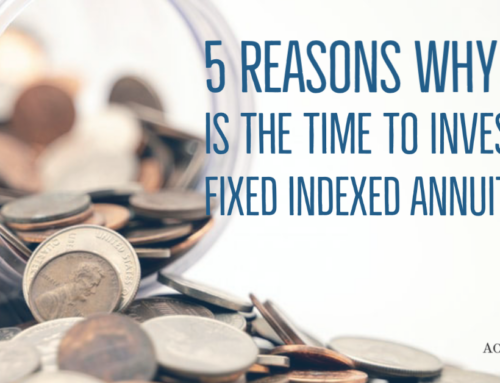You might have heard a financial advisor talk about replacing your bonds with annuities to protect your wealth and grow your retirement funds. At Active Wealth, we believe this is a smart way to protect your future. Many people have learned that bonds are a safe way to invest your money, but there are some downsides to bonds that should make you think twice. We’ll talk about some reasons why you should consider replacing your bonds with annuities. First, here’s some information on the history of bonds in the U.S.
Definition of Bond Replacement
A bond replacement occurs when you move the money you’ve invested in bonds, which can be subject to risk, to a safer investment vehicle. Many people choose to replace their bonds with annuities. Annuities are not subject to market risk, so you receive market-like gains without the market risk. Bond replacement is a strategy that can help you create a personal pension and create an income that you can never outlive.
Historical Bond Volatility
- The 1900s saw two secular bear and bull markets in U.S. fixed income.
- Inflation peaked at the end of World War I and World War II due to increased government spending.
- The first bull market started after World War I and lasted through World War II.
- The U.S. government kept bond yields artificially low until 1951.
- The long-term bond yields were at 1.9 percent in 1951.
- They climbed to nearly 15% in 1981.
- In the 1970s, globalization had a huge impact on bond markets.
- New asset classes such as inflation-protected securities, asset-backed securities, mortgage-backed securities, high-yield securities, and catastrophe bonds were created.
- Early investors in these new asset classes were compensated for taking on the challenge.
- The bond market was coming off of its greatest bull market coming into the 21st
- Long-term bond yields declined from a high of 15 percent to 7 percent by the end of the century.
- The bull market in bonds showed continued strength in the early 21st century, but there is no guarantee with our current market volatility that this will hold.
You can visit https://www.investopedia.com/articles/06/centuryofbonds.asp for more information on the history of bonds.
Why You Should Consider Replacing Your Bonds For Annuities
The first question you should ask yourself is this: why would you take market risk with your bonds when your bonds can lose their value? If you just look at the history alone, you can see how uncertain the future of bonds is. Inflation and fluctuating interest rates play a big role in bond yields. With our current market hurtling towards a potential second quarter of economic turmoil, it’s more important now than ever to protect your money.
Interest Rate Risk
Bonds and interest rates have an inverse relationship. When interest rates fall, bond prices rise. Due to Coronavirus, investors have moved their money to bonds because they believe it is a safer investment option. However, this has caused bond yields to fall to all-time lows. As of May 24, 2020, the 10-year Treasury note was yielding 0.64 percent and the 30-year Treasury bond was at 1.27 percent.
Reinvestment Risk
This is the likelihood that an investment’s cash flows will earn less in a new security. For example:
- An investor buys a 10-year $100,000 Treasury note with an interest rate of 6 percent. They expect to earn $6,000 a year.
- At the end of the term, interest rates are 4 percent. If the investor buys another 10-year note, they will earn $4,000 instead of $6,000 annually.
Consider the possibility that interest rates change over time when deciding to invest in bonds.
Systematic Market Risk
This refers to risk that is inherent to the market as a whole. It will affect the overall market, not just a particular stock or industry. This can unpredictable and it is impossible to avoid. Diversification cannot fix this issue, but the correct asset allocation strategy can make a big difference.
Unsystematic Market Risk
This type of risk is unique to a specific company or industry. Similar to systematic market risk, it is impossible to know when unsystematic risk will occur. For example, if someone is investing in healthcare stocks, they may be aware of some major changes coming to the industry. However, there is no way they can know how those changes will affect the market. There are two factors that contribute to company-specific risk:
- Business Risk: There are two types of risk: internal and external. Internal refers to operational efficiency and external would be similar to the FDA banning a specific drug that the company sells.
- Financial Risk: This relates to the capital structure of a company. A weak capital structure can lead to inconsistent earnings and cash flow that can prevent a company from trading.
Reduced Advisory Fees
Investors who trade individual stocks may know how much commission they are paying their broker, but individuals who buy bonds often have no idea what type of commission they are paying. Dealers collect commission on bonds they sell, called “mark-ups,” but they bundle them into the price that is quoted to investors. This means you are unaware of how much commission you are actually paying. Standard & Poor’s estimates of bond mark-ups is 0.85 percent of the value for corporate bonds and 1.21 percent for municipal bonds. However, mark-ups can be as high as 5 percent, up to $50 per bond.
Bonds Have Finite Durations
Bonds only provide income for a finite amount of time, unlike an annuity, which provides income for life. You must reinvest your money if you want to continue generating interest. However, reinvesting can sometimes come at a loss, which we discussed above. Annuities will provide you with an income you can never outlive.
At Active Wealth, we believe there is a better way to protect and grow your wealth. Annuities offer you market-like gains without market risk and there are several options, which makes it easy to customize to your own situation. If you are interested in learning more about annuities and how they can make a difference in your portfolio, visit activewealth.com/annuities to get access to our FREE Annuity360 guide. This is a comprehensive overview of all the things related to annuities. You can also give our office a call at (770) 685-1777 or visit activewealth.com/consult to schedule a FREE consultation. We look forward to working with you!
***
Active Wealth Management is a private wealth management firm located in Atlanta, GA. Our team is passionate about educating clients in order to empower them to invest and retire successfully and we believe in managing our client’s assets actively. Active Wealth Management works with three primary groups of people; pre-retirees, retirees, and business owners.
Active Wealth Management is led by our Founder and President, Ford Stokes, and by our Senior Vice President, Brandy Seats. They aim to help clients understand their current financial situation, analyze their current portfolio, and develop a customized financial plan to accomplish their goals. If you would like more information about the firm, please visit our website, https://activewealth.com, or call our office at (770) 685-1777. You will not be passed off to another advisor. You will meet with either Ford or Brandy. You can schedule directly into their calendars at https://activewealth.com/consult/.






